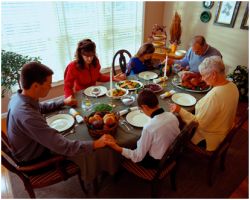TO BUILD A SHELTER
 An article by John Allen in the National Catholic Reporter (July 9, 2012) resonated with some of what I have felt about the present political climate and perhaps overlapping with the effect of the Catholic church’s official positions.
An article by John Allen in the National Catholic Reporter (July 9, 2012) resonated with some of what I have felt about the present political climate and perhaps overlapping with the effect of the Catholic church’s official positions.
Allen pays tribute to the many years of principled, faithful service of John Carr who is resigning from the position of Executive Director of Justice, Peace, and Human Development of the United States Conference of Catholic Bishops. He surely worked each day with conflict between institutions he respected and oppositional political positions. Carr’s letter of resignation says, in part:
For years, I and others have said we sometimes feel “politically homeless,” alienated from polarized politics and false choices . . . When we are “politically homeless,” it is not enough to proclaim our purity or complain about others; we need to find a home, or at least build a shelter. We need places and strategies to advance a consistent vision of defending human life and dignity, to bridge differences through civil dialogue and pursuit of the common good, and form and encourage more lay leaders to act as “faithful citizens” in American public life.
Carr’s insight can be extended beyond his long years of dealing with major issues on the level of policy and communication facing the American Catholic church. The dimensions of discord are not confined to institutional concerns; they touch individuals as well. I can’t be the only one who feels, on a smaller scale, something of the tension Carr expresses regarding the pressures of his career. His wistful summing up resonates with me in politics, but more feelingly regarding women in the church.
As a woman religious, I’ve been committed to the education and advancement of women. It is understandable that I watch with conflicted thoughts and emotions as friends separate themselves from the church. More and more, they find themselves unwelcome or limited. Some find a “resting place” in other Christian churches. Some do not. Many feel the “homelessness” Carr expresses, whether they remain out of lifelong but challenged loyalty, settled conviction, or uncertainty about where to go. Is it possible to build a shelter within the church where women’s discontents could be taken seriously, respectfully, and find a response that is open to new possibilities? Baptism as the entry to a life of Christian faith, is for women, conditional.
and more, they find themselves unwelcome or limited. Some find a “resting place” in other Christian churches. Some do not. Many feel the “homelessness” Carr expresses, whether they remain out of lifelong but challenged loyalty, settled conviction, or uncertainty about where to go. Is it possible to build a shelter within the church where women’s discontents could be taken seriously, respectfully, and find a response that is open to new possibilities? Baptism as the entry to a life of Christian faith, is for women, conditional.
Meanwhile, conviction anchored in hope, has no conditions: women continue faithful lives of devotion, responsibility, conscience. In the present situation, lamentation and praise are grounded in God’s Spirit. Deep down conviction impels efforts, hopes, and visions—and the words to express them.
I love St. Irenaeus’s wisdom when he says that God’s greatest glory is “the human person fully alive.” Women I have known fully fit the description of mature believer and committed Catholic Christian, people fully alive before God, defenders of the faith, impatient to be the hands and heart of Jesus in our world as it is.
